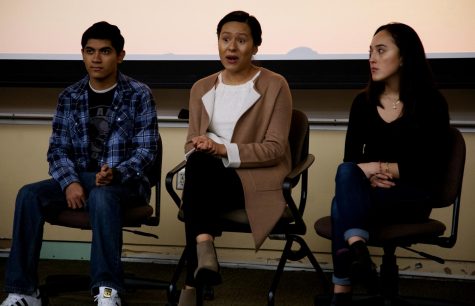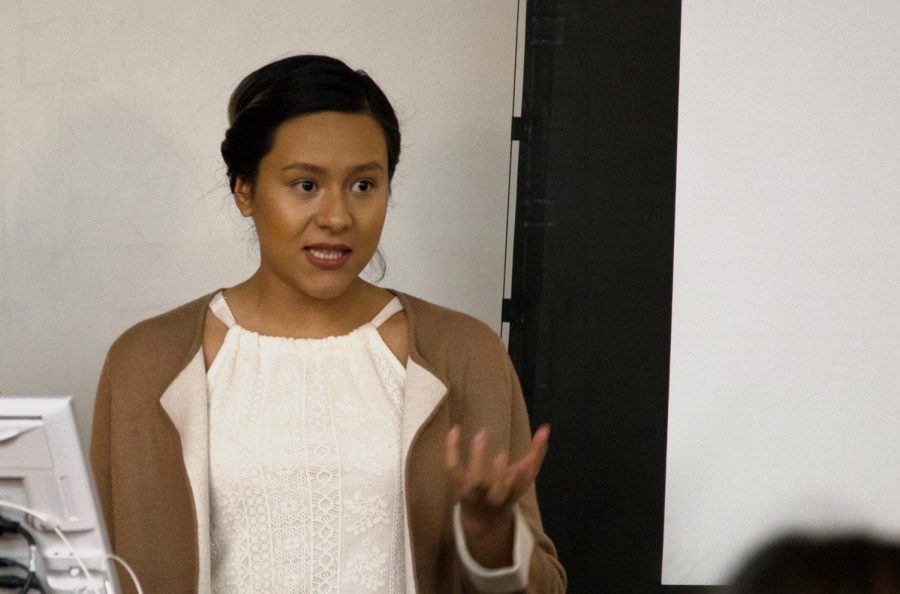Students share stories, lobby for DREAM Act
After DACA was rescinded, some see clean DREAM Act as path to citizenship
ZACH RUBIO | The Daily Evergreen
Crimson Group member Brenda Rodriguez speaks about the DREAM Act on Thursday at a forum.
November 9, 2017
WSU Crimson Group students joined in a national movement by holding a forum on campus and sending three members to Washington D.C., urging leaders to support immigration reform.
During Thursday’s forum, Crimson Group member Carolina Silva said the forum and Washington D.C. events were meant to educate the public and officials, as well as garner support for an un-amended version of the Development, Relief and Education for Alien Minorities Act, also known as the clean DREAM Act.
The act was first introduced in 2001 and has been re-introduced in some iteration every year since. Silva, a graduate student, said many younger members of the club were only toddlers when the act entered the public sphere.
“This has been going on for the majority of our lives,” she said.
Crimson Group member Brenda Rodriguez said she wondered how her college experience may have been different if the DREAM Act had been passed when it was first introduced.
Rodriguez applied and was accepted to WSU her senior year of high school, but had to decline the offer due to lack of financial aid. At the time, the Washington Application for State Financial Aid was not available, and students without Social Security numbers are not allowed to apply for federal aid.
Rodriguez was able to get a work permit through the Deferred Action for Childhood Arrivals, or DACA, program and pay her way through community college before she was able to transfer to WSU.

Crimson Group members from left to right: Jesus Policarpo, Brenda Rodriguez and Daniela Reyna answer questions about the DREAM Act on Thursday evening.
Now that President Donald Trump has rescinded the program, she sees the act as her only option to pursue her dream of becoming a professor.
“The clean DREAM Act, for me, is a future where I can actually work,” she said. “I just want to be like everyone else and apply and the reason why I choose not to go to a place is because I don’t want to go to that place, not because I can’t.”
Silva said their efforts have been focused on Central Washington Congressional representatives Dave Reichert and Dan Newhouse, who hail from districts that have a high population of undocumented immigrants. The bill they have supported, the Bridge Act, doesn’t offer a pathway to citizenship, and therefore is not seen as a permanent solution by activists.
They also hope to draw attention to Rep. Cathy McMorris Rodger’s lack of support to any specific immigration reform bills.
Rodriguez said that for the act to be politically feasible, it must be passed by December. Without a path to citizenship or a work permit program like DACA, her and other club members will not be able to use their degrees and will face uncertain futures.
“It will likely be a life-changing event for all of us,” Rodriguez said.











